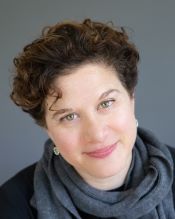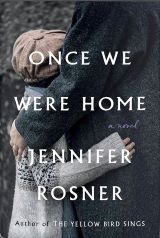In
Once We Were Home, award-winning author, Jennifer Rosner, writes a compelling novel following four children who were displaced and sent into hiding during WWII, how their lives changed in the aftermath of war, and their emotional journey back to their roots. While the characters are fictionalized, their experiences were true of many Jewish children during this time. For Rosner, the concept for this book came from her research interviewing children who were hidden during the Holocaust for her first novel,
The Yellow Bird Sings, where she came across a man who suggested that she talk to his wife. Rosner explains, “She hadn’t been hidden, but she had actually been in a Siberian labor camp during the war and when she returned to her native village in Poland, she learned that, something like, just 3% of Jewish children had survived and most of them were in Christian settings with assumed identities… and there was this mission that grew to try to retrieve those children and bring them back into the Jewish hold, and for many reasons… but also because they thought of it as honoring the last wishes of the parents who perished because the parents put them into hiding to survive and they hoped they’d come back and get them, and then they didn’t survive, but they didn’t intend that they would just live their life growing up in a Christian family. They had wanted to raise them in their own faith… and finally, it was still so anti-Semitic after the war. There was this fear that even if the families they were harbored with were loving, there was this worry about the villagers and other neighbors, etc., and so there was a lot of pressure to try to get the children back…”
Within the book, readers will find interwoven storylines among the four characters that connects their lives together. Although this structure can be quite complex, Rosner prefers to let the stories develop naturally through her writing rather than planning too far ahead. She said, “When I try to plan in advance, I find the writing becomes contrived because you’re writing with this very particular endpoint in mind… for me, the organic nature of it and the movement of whatever my unconscious mind is doing in all this feels really important, and it usually feels much more organic to just let it happen… you, sort of, have to have this faith that your mind, there’s a web aspect that it’s all going to connect eventually and that there’s a reason you’re writing this scene and that scene and this scene… getting out the scenes and then figuring out what story you’re telling is one way to go.”





Want to join the discussion?
Feel free to contribute!